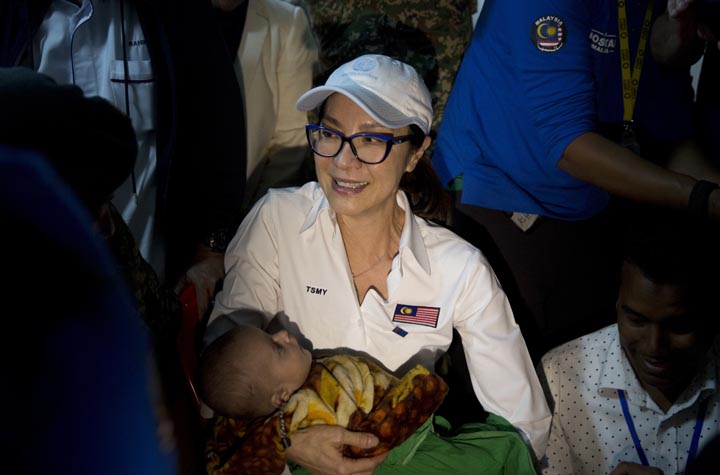The police in Indonesia have broadened their blasphemy investigation into the capital’s Christian governor, naming him a suspect in a case that has fueled political tensions over religious intolerance in the world’s most populous Muslim nation.
Jakarta Governor Basuki Tjahaja Purnama, a political ally of President Joko Widodo, better known as Jokowi, has been accused of insulting the Koran over comments he made in September that Muslim groups have alleged amounted to blasphemy, which in Indonesia can carry a penalty of up to five years in jail. The governor has previously denied wrongdoing.
Police Chief Tito Karnavian confirmed the case was now a criminal matter, although he said Purnama would not be detained because of dissenting opinions among the 21 people investigating the case. “There were some who said this should be a criminal investigation and others who disagreed. But the majority says that this is a criminal investigation,” he said.
“I’m confident that the public wants this legal process to be conducted openly and we will respect whatever the result of this open court process,” Karnavian said. He said he was also confident the Indonesian people did not want “any acts of violence and acts of anarchy” or others to use the “momentum of this case” to support their own agenda.
Ari Dono Sukmanto, chief of the Indonesia Police Criminal Investigation Agency, said Purnama would be banned from leaving the country. “The decision is dominated by the opinion that the case must be resolved in an open court,” Sukmanto said.
‘Clear indication’
The fallout over the case has already forced the president, who has accused “political actors” of inflaming tensions, to postpone a state visit to Australia.
More than 100,000 people protested on November 4, calling for the governor to be jailed, with some holding signs saying “Ahok is an Enemy of Islam,” referring to Purnama’s nickname. The rally, although largely peaceful for much of the day, turned violent in the evening as demonstrators refused to disperse after marching on the presidential palace.
“This is a clear indication that Jokowi wants to distance himself from Ahok. He fears that continued support for him could damage his presidency,” said Marcus Mietzner, an associate professor at the Australian National University in Canberra. “The decisive question is now how voters will react. If Ahok experiences a serious drop in the polls—which I suspect he will—this constitutes a significant political victory for Islamists and their political sponsors.”
Mietzner said he was certain that Jokowi would go after the political interests behind this religious mobilization, possibly including former President Susilo Bambang Yudhoyono, who could now expect “legal investigations against him and his family over corruption under his presidency. Overall, we are going to see heightened political tensions in the months and years ahead,” he said.































